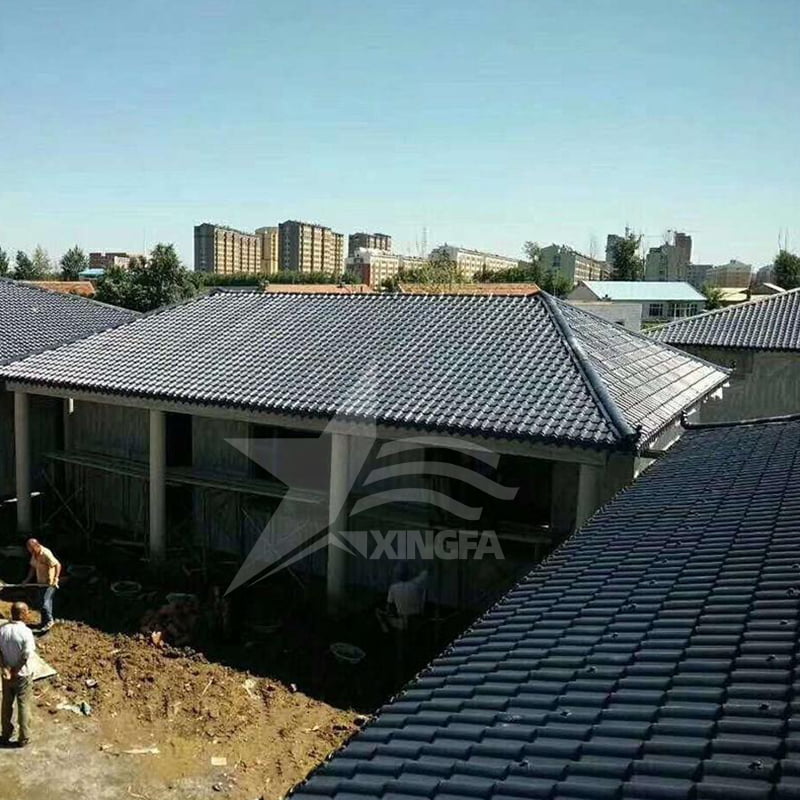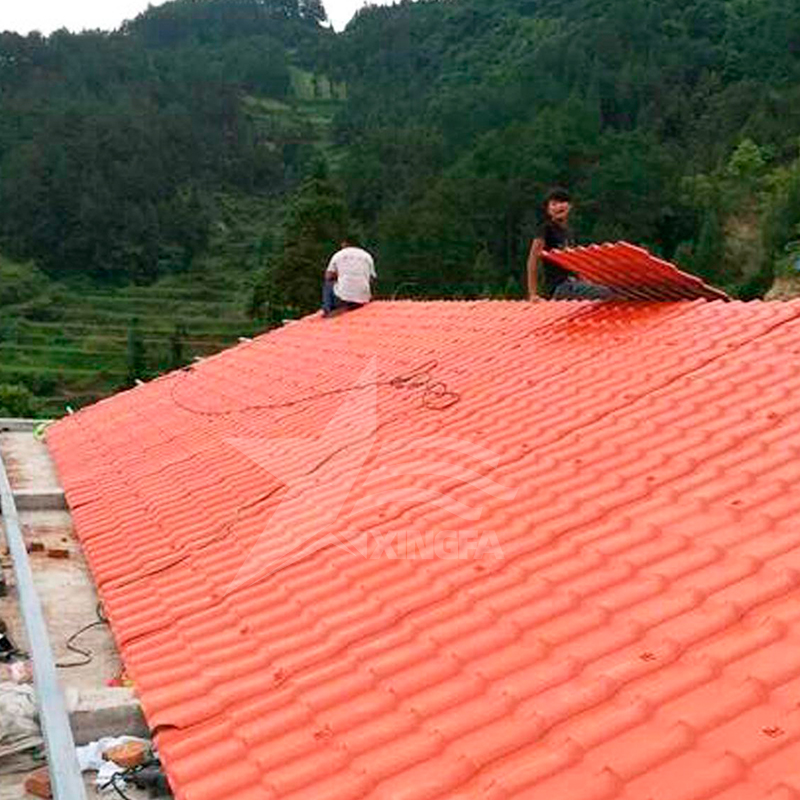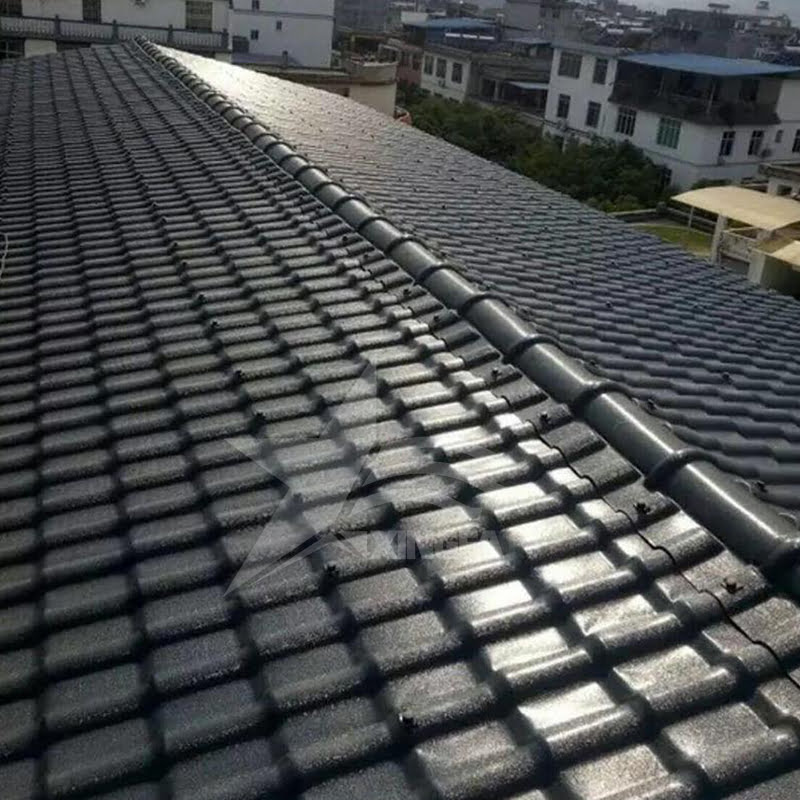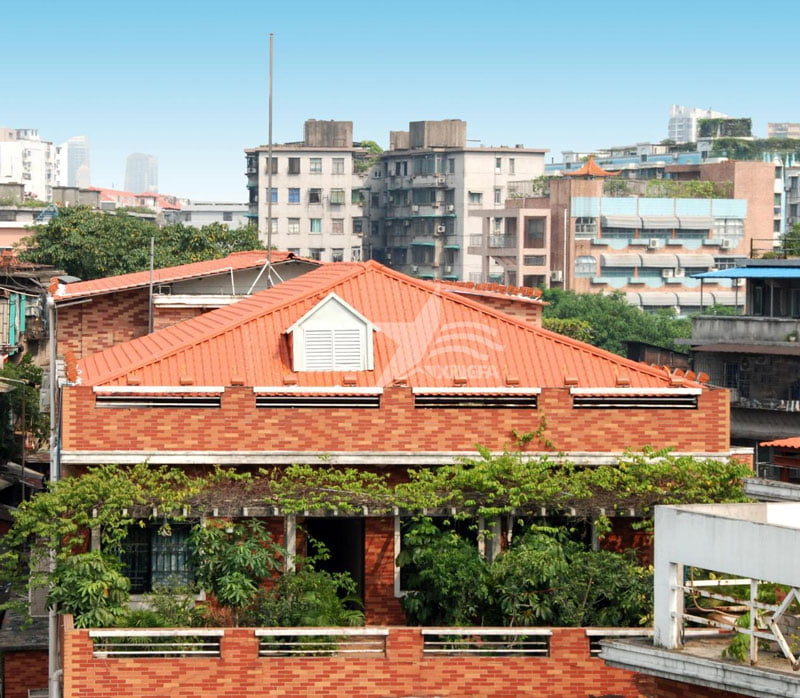The advantages of synthetic resin tiles are as follows:
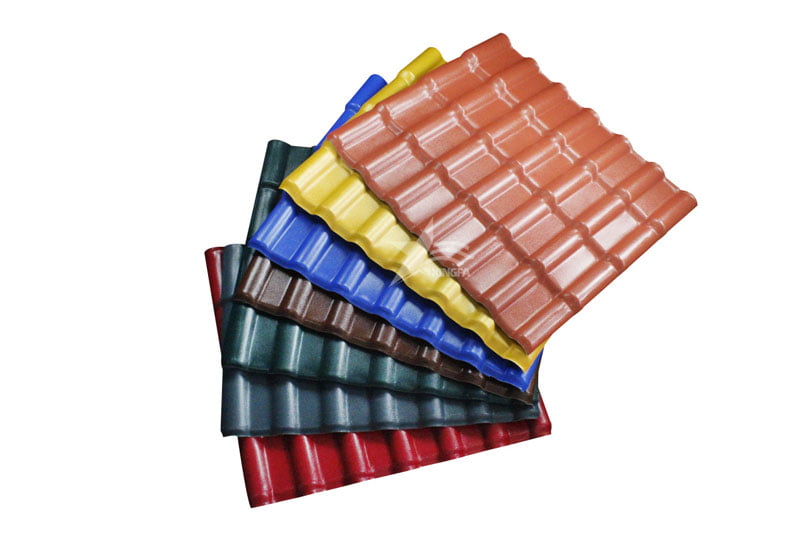
- Light weight, but very resistant to weight: Because synthetic resin tiles are chemical products, they are relatively light, which makes installation simple and convenient, and can reduce the load-bearing capacity of the house. Synthetic resin tiles are light, but they have strong pressure resistance and impact resistance. Even if you hit the surface of the resin tiles hard, there will be no cracks.
- Fireproof grade B1, fireproof and corrosion-resistant: Houses are very important for fire safety issues. The fireproof grade of synthetic resin tiles is B1, which meets the national fireproof standards for roofing materials, and it has good corrosion resistance. It will not be corroded and aged when exposed to the natural environment, sun, rain, and seasonal changes.
- Resin tiles can insulate heat and sound: The sound insulation effect of synthetic resin tiles can isolate noise from the outside, and resin tiles can insulate heat in summer, providing people with a more comfortable environment.
- Resin tiles are green and environmentally friendly: Although they are produced by chemical processes, resin tiles are green, environmentally friendly and recyclable.

The disadvantages of synthetic resin tiles are as follows:
- Not resistant to high temperatures: Resin tiles cannot withstand temperatures above 70°C and are prone to deformation.
- Thermal expansion and contraction: Synthetic resin tiles will expand and contract. When placed in an environment of -30°C, the resin tiles will change due to the temperature difference. Therefore, if the length of a resin tile does not exceed 6.5 meters, thermal expansion and contraction will easily cause bulging.




